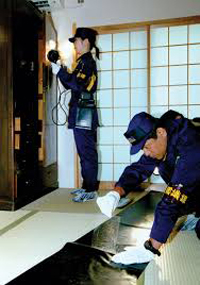NE NEWS SERVICE
AHMEDABAD, JULY 3
Unarmed police constables in Gujarat with five years of experience are now empowered to investigate minor criminal cases in which imprisonment is up to five years, the state government said on Friday.
By virtue of notification of Govt. of Gujarat, Unarmed constables with five years’ experience get powers to investigate offences of upto 5 years imprisonment
This will improve service delivery to the public by better distribution of workload and better quality of investigation pic.twitter.com/sKm0ZCs9hG
— DGP Gujarat (@dgpgujarat) July 2, 2020
The government announced the decision through a notification.
The move to empower unarmed constables in the investigation process will not only help the police in early disposal of criminal cases but also boost the morale of lower rung personnel, said a government release.
https://twitter.com/dgpgujarat/status/1276522934866022400?s=20
“Unarmed constabulary staff with five years of experience are empowered to investigate cases of punishment up to five years,” said the release.
Gujarat DGP Shivanand Jha hailed the decision, saying it will lead to a better quality of investigation.
“By virtue of notification of Govt.of Gujarat, Unarmed constables with five years experience get powers to investigate offenses of up to 5 years imprisonment.
“This will improve service delivery to the public by a better distribution of workload and better quality of investigation,” the DGP tweeted.
The Code of Criminal Procedure (CrPC) of 1973 provides investigative powers to police personnel of the rank of head constables and above.
Constables were left out mainly because when the Act came into force, the qualification for police constables at recruitment level was of least educational standards, said the release.
Hence, a major chunk of the police force at constabulary level was kept away from investigation until they acquire sufficient knowledge and experience, it said.
“However, the present generation of constables are highly qualified and educated, enabling them to acquire investigating skills much early.
“If they are given an opportunity at an early stage, they will be more enthused to perform better and contribute to the department in a big way,” said the release.
Moreover, this step was also necessary to speed up the investigation as head constables and personnel above them, such as sub-inspectors and inspectors, find it difficult to cope with the high volume of cases, which was leading to delay in their disposal, it added.












